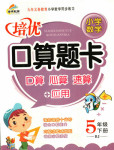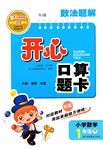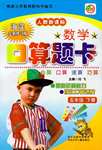题目内容
My parents in Hong Kong. They were born there and have never lived anywhere else.
A. live B. lived
C. were living D. will live
练习册系列答案
 培优口算题卡系列答案
培优口算题卡系列答案 开心口算题卡系列答案
开心口算题卡系列答案 口算题卡河北少年儿童出版社系列答案
口算题卡河北少年儿童出版社系列答案
相关题目
题目内容
My parents in Hong Kong. They were born there and have never lived anywhere else.
A. live B. lived
C. were living D. will live
 培优口算题卡系列答案
培优口算题卡系列答案 开心口算题卡系列答案
开心口算题卡系列答案 口算题卡河北少年儿童出版社系列答案
口算题卡河北少年儿童出版社系列答案